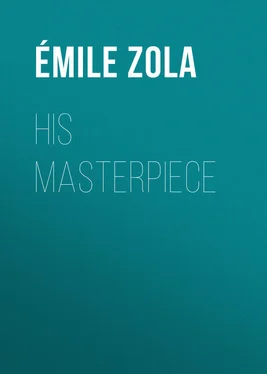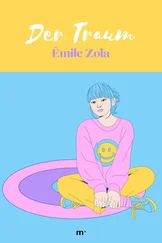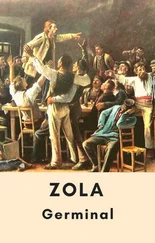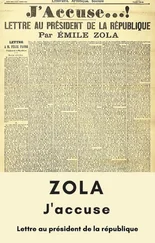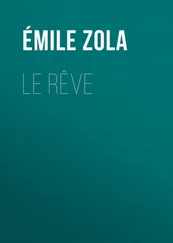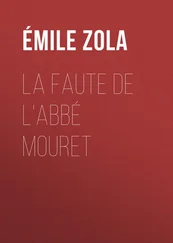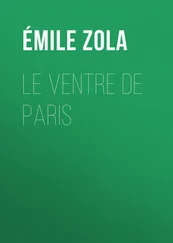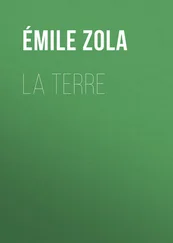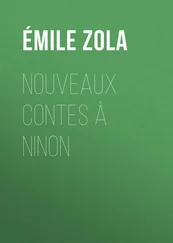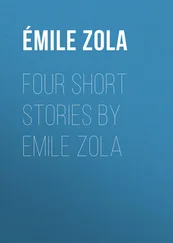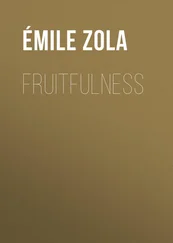Émile Zola - His Masterpiece
Здесь есть возможность читать онлайн «Émile Zola - His Masterpiece» — ознакомительный отрывок электронной книги совершенно бесплатно, а после прочтения отрывка купить полную версию. В некоторых случаях можно слушать аудио, скачать через торрент в формате fb2 и присутствует краткое содержание. Жанр: literature_19, foreign_antique, foreign_prose, на английском языке. Описание произведения, (предисловие) а так же отзывы посетителей доступны на портале библиотеки ЛибКат.
- Название:His Masterpiece
- Автор:
- Жанр:
- Год:неизвестен
- ISBN:нет данных
- Рейтинг книги:5 / 5. Голосов: 1
-
Избранное:Добавить в избранное
- Отзывы:
-
Ваша оценка:
- 100
- 1
- 2
- 3
- 4
- 5
His Masterpiece: краткое содержание, описание и аннотация
Предлагаем к чтению аннотацию, описание, краткое содержание или предисловие (зависит от того, что написал сам автор книги «His Masterpiece»). Если вы не нашли необходимую информацию о книге — напишите в комментариях, мы постараемся отыскать её.
His Masterpiece — читать онлайн ознакомительный отрывок
Ниже представлен текст книги, разбитый по страницам. Система сохранения места последней прочитанной страницы, позволяет с удобством читать онлайн бесплатно книгу «His Masterpiece», без необходимости каждый раз заново искать на чём Вы остановились. Поставьте закладку, и сможете в любой момент перейти на страницу, на которой закончили чтение.
Интервал:
Закладка:
He also became silent. The previous winter he had published his first book: a series of little sketches, brought from Plassans, among which only a few rougher notes indicated that the author was a mutineer, a passionate lover of truth and power. And lately he had been feeling his way, questioning himself while all sorts of confused ideas throbbed in his brain. At first, smitten with the thought of undertaking something herculean, he had planned a genesis of the universe, in three phases or parts; the creation narrated according to science; mankind supervening at the appointed hour and playing its part in the chain of beings and events; then the future – beings constantly following one another, and finishing the creation of the world by the endless labour of life. But he had calmed down in presence of the venturesome hypotheses of this third phase; and he was now looking out for a more restricted, more human framework, in which, however, his vast ambition might find room.
‘Ah, to be able to see and paint everything,’ exclaimed Claude, after a long interval. ‘To have miles upon miles of walls to cover, to decorate the railway stations, the markets, the municipal offices, everything that will be built, when architects are no longer idiots. Only strong heads and strong muscles will be wanted, for there will be no lack of subjects. Life such as it runs about the streets, the life of the rich and the poor, in the market places, on the race-courses, on the boulevards, in the populous alleys; and every trade being plied, and every passion portrayed in full daylight, and the peasants, too, and the beasts of the fields and the landscapes – ah! you’ll see it all, unless I am a downright brute. My very hands are itching to do it. Yes! the whole of modern life! Frescoes as high as the Pantheon! A series of canvases big enough to burst the Louvre!’
Whenever they were thrown together the painter and the author generally reached this state of excitement. They spurred each other mutually, they went mad with dreams of glory; and there was such a burst of youth, such a passion for work about their plans, that they themselves often smiled afterwards at those great, proud dreams which seemed to endow them with suppleness, strength, and spirit.
Claude, who had stepped back as far as the wall, remained leaning against it, and gazing at his work. Seeing which, Sandoz, overcome by fatigue, left the couch and joined him. Then both looked at the picture without saying a word. The gentleman in the velveteen jacket was entirely roughed in. His hand, more advanced than the rest, furnished a pretty fresh patch of flesh colour amid the grass, and the dark coat stood out so vigorously that the little silhouettes in the background, the two little women wrestling in the sunlight, seemed to have retreated further into the luminous quivering of the glade. The principal figure, the recumbent woman, as yet scarcely more than outlined, floated about like some aerial creature seen in dreams, some eagerly desired Eve springing from the earth, with her features vaguely smiling and her eyelids closed.
‘Well, now, what are you going to call it?’ asked Sandoz.
‘ The Open Air ,’ replied Claude, somewhat curtly.
The title sounded rather technical to the writer, who, in spite of himself, was sometimes tempted to introduce literature into pictorial art.
‘ The Open Air ! that doesn’t suggest anything.’
‘There is no occasion for it to suggest anything. Some women and a man are reposing in a forest in the sunlight. Does not that suffice? Don’t fret, there’s enough in it to make a masterpiece.’
He threw back his head and muttered between his teeth: ‘Dash it all! it’s very black still. I can’t get Delacroix out of my eye, do what I will. And then the hand, that’s Courbet’s manner. Everyone of us dabs his brush into the romantic sauce now and then. We had too much of it in our youth, we floundered in it up to our very chins. We need a jolly good wash to get clear of it.’
Sandoz shrugged his shoulders with a gesture of despair. He also bewailed the fact that he had been born at what he called the confluence of Hugo and Balzac. Nevertheless, Claude remained satisfied, full of the happy excitement of a successful sitting. If his friend could give him two or three more Sundays the man in the jacket would be all there. He had enough of him for the present. Both began to joke, for, as a rule, Claude almost killed his models, only letting them go when they were fainting, half dead with fatigue. He himself now very nigh dropped, his legs bending under him, and his stomach empty. And as the cuckoo clock struck five, he snatched at his crust of bread and devoured it. Thoroughly worn out, he broke it with trembling fingers, and scarcely chewed it, again standing before his picture, pursued by his passion to such a degree as to be unconscious even that he was eating.
‘Five o’clock,’ said Sandoz, as he stretched himself, with his arms upraised. ‘Let’s go and have dinner. Ah! here comes Dubuche, just in time.’
There was a knock at the door, and Dubuche came in. He was a stout young fellow, dark, with regular but heavy features, close-cropped hair, and moustaches already full-blown. He shook hands with both his friends, and stopped before the picture, looking nonplussed. In reality that harum-scarum style of painting upset him, such was the even balance of his nature, such his reverence as a steady student for the established formulas of art; and it was only his feeling of friendship which, as a rule, prevented him from criticising. But this time his whole being revolted visibly.
‘Well, what’s the matter? Doesn’t it suit you?’ asked Sandoz, who was watching him.
‘Yes, oh yes, it’s very well painted – but – ’
‘Well, spit it out. What is it that ruffles you?’
‘Not much, only the gentleman is fully dressed, and the women are not. People have never seen anything like that before.’
This sufficed to make both the others wild. Why, were there not a hundred pictures in the Louvre composed in precisely the same way? Hadn’t all Paris and all the painters and tourists of the world seen them? And besides, if people had never seen anything like it, they would see it now. After all, they didn’t care a fig for the public!
Not in the least disconcerted by these violent replies, Dubuche repeated quietly: ‘The public won’t understand – the public will think it indecorous – and so it is!’
‘You wretched bourgeois philistine!’ exclaimed Claude, exasperated. ‘They are making a famous idiot of you at the School of Arts. You weren’t such a fool formerly.’
These were the current amenities of his two friends since Dubuche had attended the School of Arts. He thereupon beat a retreat, rather afraid of the turn the dispute was taking, and saved himself by belabouring the painters of the School. Certainly his friends were right in one respect, the School painters were real idiots. But as for the architects, that was a different matter. Where was he to get his tuition, if not there? Besides his tuition would not prevent him from having ideas of his own, later on. Wherewith he assumed a very revolutionary air.
‘All right,’ said Sandoz, ‘the moment you apologise, let’s go and dine.’
But Claude had mechanically taken up a brush and set to work again. Beside the gentleman in the velveteen jacket the figure of the recumbent woman seemed to be fading away. Feverish and impatient, he traced a bold outline round her so as to bring her forward.
‘Are you coming?’
‘In a minute; hang it, what’s the hurry? Just let me set this right, and I’ll be with you.’
Sandoz shook his head and then remarked very quietly, lest he should still further annoy him: ‘You do wrong to worry yourself like that, old man. Yes, you are knocked up, and have had nothing to eat, and you’ll only spoil your work, as you did the other day.’
Читать дальшеИнтервал:
Закладка:
Похожие книги на «His Masterpiece»
Представляем Вашему вниманию похожие книги на «His Masterpiece» списком для выбора. Мы отобрали схожую по названию и смыслу литературу в надежде предоставить читателям больше вариантов отыскать новые, интересные, ещё непрочитанные произведения.
Обсуждение, отзывы о книге «His Masterpiece» и просто собственные мнения читателей. Оставьте ваши комментарии, напишите, что Вы думаете о произведении, его смысле или главных героях. Укажите что конкретно понравилось, а что нет, и почему Вы так считаете.
